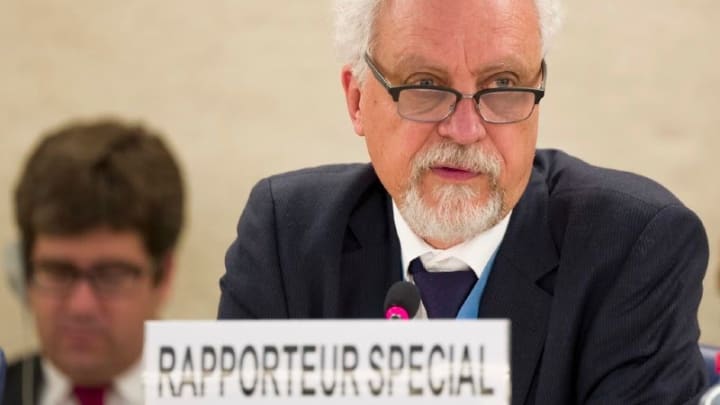
ALICANTE, Spain — As Léo Heller leaves his role as United Nations special rapporteur for the human right to water and sanitation, he has a parting message for the water and sanitation sector: It is imperative to fully incorporate the framework of the human right to safe drinking water and sanitation.
Heller held the voluntary position for the maximum two terms, or six years, and was succeeded at the start of the month by Spanish professor and ecologist Pedro Arrojo-Agudo.
As he steps away, Heller said some sector actors are still ignoring, or remain unconvinced, that the human rights framework — a set of principles that include the normative content of the right to water and sanitation and the general human rights principles — is important in producing better water and sanitation outcomes. Funders are also more focused on spending money rather than on how to adhere to the framework, he added.
According to the Office of the U.N. High Commissioner for Human Rights, human rights require “a holistic understanding of access to water and sanitation” and “an explicit focus on the most disadvantaged and marginalized, as well as an emphasis on participation, empowerment, accountability, and transparency.”
New UN special rapporteur on water backs predecessor in privatization row (Pro)
After former U.N. special rapporteur for the human right to water and sanitation, Léo Heller, ended his term amid controversy about privatization, his replacement says it must be discussed.
On a national level, Heller said adequate legislation and courts that safeguard water and sanitation from being treated as a commodity as well as autonomous regulatory bodies are what’s needed. “Policies and regulations and other institutional and legal activities need to be implemented to support a new mindset,” he said.
Since 2010 — when the U.N. general assembly officially recognized water and sanitation as a human right — many countries, including Egypt, Mexico, Niger, and Somalia, have done just that by updating policies, creating new constitutional provisions, or passing specific legislation around the human right to water and sanitation. But many others have not. “At the national levels, providers, regulators, the ministries of water … in 10 years, most of them have not incorporated this framework appropriately,” Heller said, adding that there is a long way to go.
Today, 1 in 3 people still lack access to safe drinking water and 4.2 billion people lack access to safe sanitation.
Even UN-Water is among those entities slower to incorporate it, Heller said, but now that it’s working on a Roadmap to 2030 with clearer incorporation of the human right, he hopes that will change.
“The other thing is to think beyond the household level. This is important because the water and sanitation sector uses the household as the unity of integration and for instance, public spaces and other spaces like workplaces, prisons, and others are not on the radar of the sector,” he said. For example, almost half of health care centers in the lowest-income countries have no clean water and 37% of schools don’t have a decent toilet on site.
“There is a need to think more broadly, not only to implement services to those that can pay for the services, but to have universal access,” Heller said.




